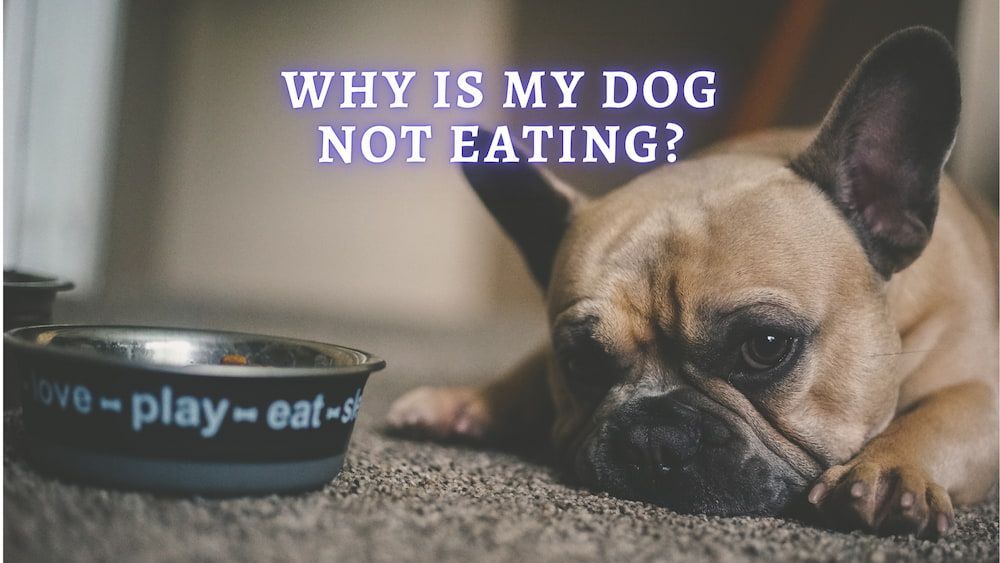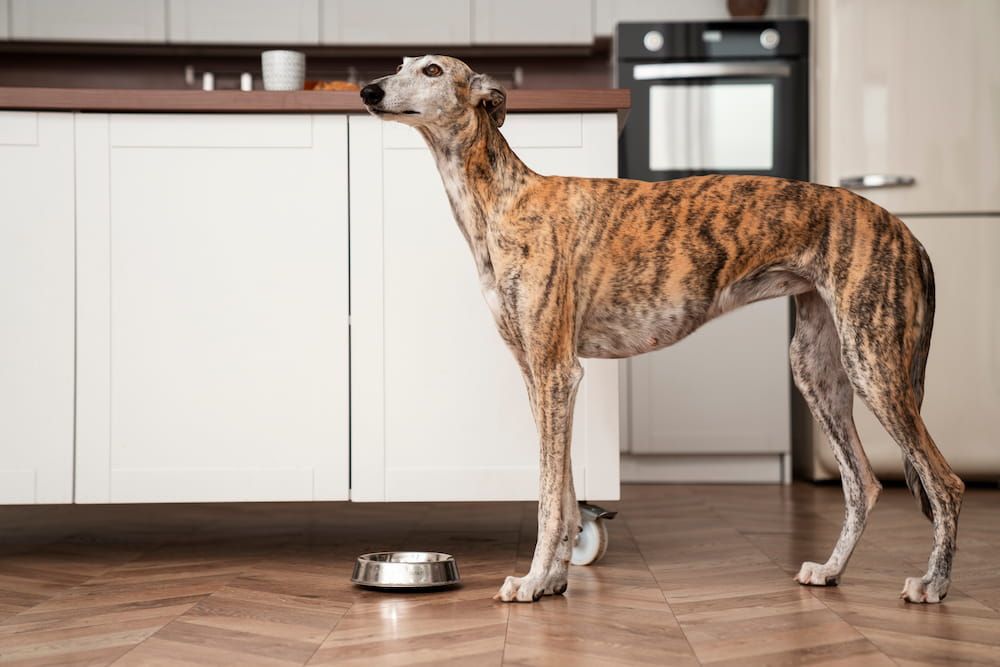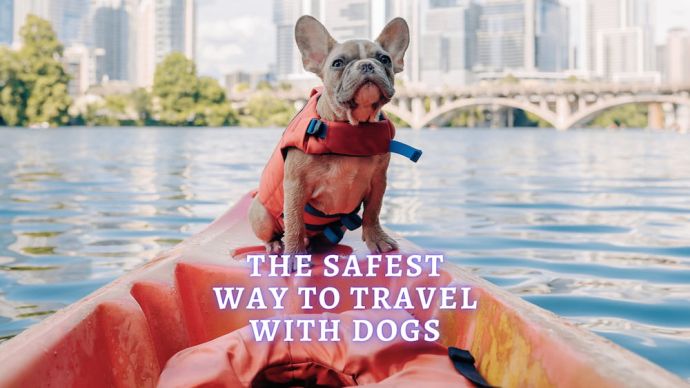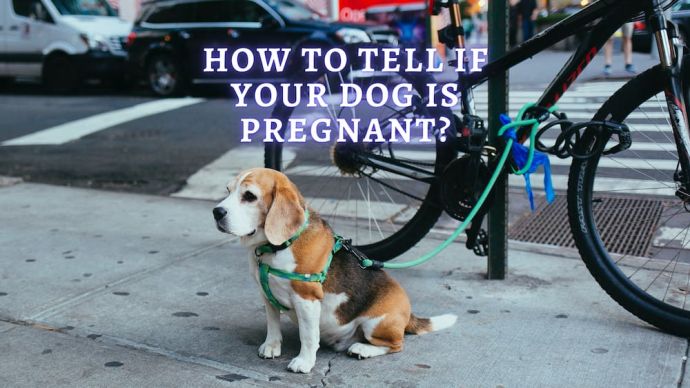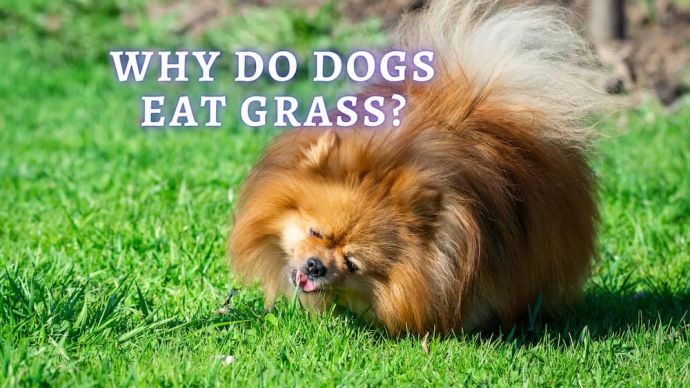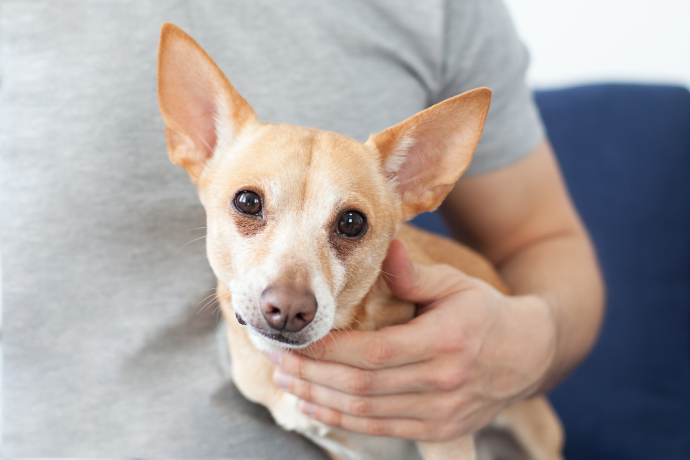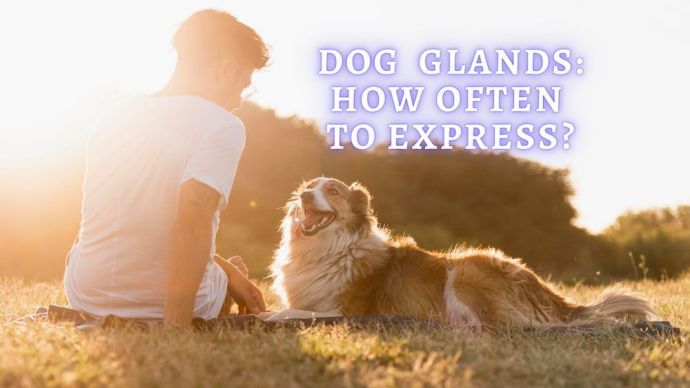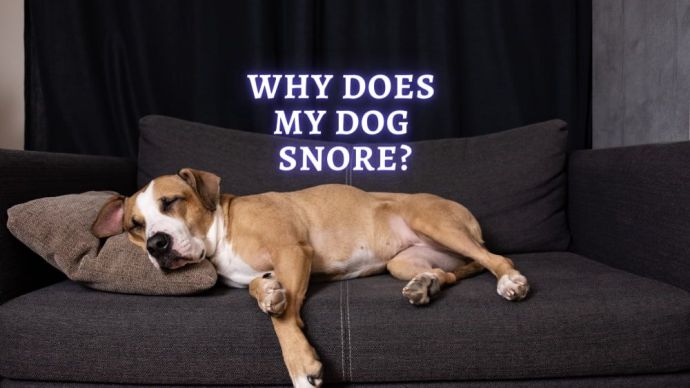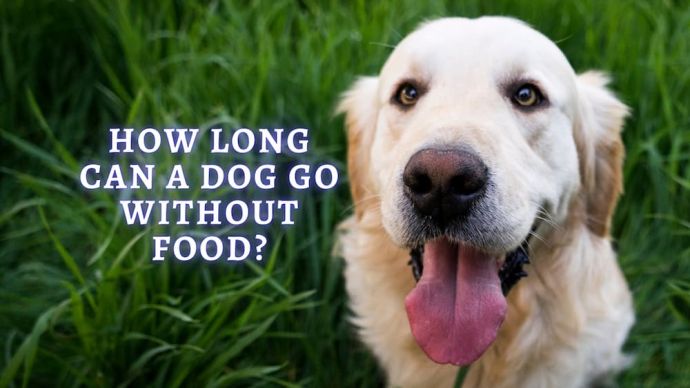Why Is My Dog Not Eating? 10 Reasons Your Dog Stopped Eating
Written by:
Author: Marissa Prizio
Marissa Prizio attended the University of New Hampshire and earned a bachelor's degree in biomedical Animal Science. Marissa has always enjoyed writing; she was even mixing literature classes into her science major in college. During her writing career, she has edited eBooks, written for a variety of websites, and created audio-visual courses for sustainability.
View all 36 articlesLearn about our editorial process and veterinary review board.
Viewed: 93
Updated on: 04/22/2023
Dogs love few things more than their families and food, so it can be quite concerning when we notice a decreased appetite in pets. Even seemingly healthy dogs acting like their usual self can experience changes in appetite, and it is up to their owners to figure out why. A pet’s loss of appetite can result from many different factors, so let’s dig into the possible reasons for your dog’s decreased appetite.
Reasons Your Dog Stopped Eating
Anorexia is commonly used to describe a loss of appetite in dogs. There are two forms of anorexia recognized in dogs. The first is pseudo-anorexia, which refers to a decreased appetite resulting from an inability to eat food even though the pet acts hungry. [1] A pet with true anorexia will not act hungry. Both of these forms can be life-threatening if not treated, and treatment starts with uncovering the cause of this behavior, so here are some common causes of canine appetite loss.
1. Systemic Diseases
Systemic disease is any organ that is infected or fails to function correctly. This can include kidney disease, kidney failure, diabetes, heart disease, liver disease, and even thyroid gland malfunctions. ncorToID]1[/ancorToID] [2] [3] These conditions may be more common in senior pets. Still, they can happen at any age for some reason, and it is essential to rule them out as a cause of true anorexia early on.
2. Pain
Have you ever tried to eat with a toothache? All that pain can make it impossible to eat even if you are starving, and our pets experience a similar dilemma. This pseudo-anorexia is commonly seen in dogs with dental disease or painful masses around the mouth and throat. Your pet’s teeth may be hindering their eating more than helping. Pain in other body parts can also decrease your pet’s desire or ability to eat, so take note of painful places on your pet’s body.[1]
RELATED: Signs of Pain in Dogs
3. Age
Old age is hard on all animals and comes with aches, pains, and diseases commonly found in older dogs. While it isn’t uncommon for an older pet to need fewer calories than playful young puppies, it is unusual for senior pups to stop eating altogether. A painful neck or slippery kitchen tile may keep them from their food and water bowls even when hungry.[1]
READ MORE: Old Dog Won’t Eat
4. Psychological Stress
Dogs are highly social animals, and they can experience psychological stress. Unlike people, each pup can react differently to the same scenario, which is why some experience severe separation anxiety. Separation anxiety and other forms of stress can ruin the appetite in pets even if they are otherwise healthy.[1] [2] [3]
5. Strict Preferences
Picky eaters aren’t just people, and our pups can develop strict preferences for their food too. Some dogs have such firmly established eating habits that a food change, even a minor shift in ingredients, can put them off their food. Obsessions with the same food day after day can be difficult if the recipe changes, so it is best to work some variety into their diet when they are young. [1] [2]
Other dogs get accustomed to human food, which they find to be much more delicious than their kibble. In an attempt to get more table scraps, these picky pups may ignore their own food as they wait for something better. [1]
6. Loss Of Smell
Our canine and feline companions take many eating cues from their strong sense of smell. If your pup recently lost their smell, they may find the foods less appetizing as they adapt to this change. [1]
7. Blockages
A gastrointestinal blockage can result from any foreign item or mass obstructing the digestive tract. [1] Obstructions like this are not only painful, but they interfere with regular functions that lead to hunger. A pet won’t eat with gastrointestinal pain and no room for new food.
8. Nausea
An upset stomach can be the ultimate appetite killer. Signs of nausea include excessive drooling, lip licking, and heaving or wrenching motions. If your pet is on the verge of puking due to digestive issues, bad food, or too many treats, then they are unlikely to willingly consume their meals until the nausea is resolved. [1]
9. Heat Or Fever
Excessive heat is the opposite of an appetite stimulant, since eating food produces more body heat. Whether this heat results from summer weather or fever, it can have a notable impact on dog behavior when it comes to feeding time. [1] [3]
10. Medications
Medications can come with a number of side effects, and decreased appetite commonly finds its way onto that list. Chemotherapy and non-steroidal anti-inflammatory medications are most commonly associated with medication-induced appetite loss. [1] [3]
Steps To Find Out Why Your Dog Is Not Eating
If your dog won’t eat, it is time to do some detective work. With an early loss of appetite, your search for answers can begin at home. Look for signs of pain around your pet’s body or mouth, take note of changes in behavior, and consider any changes in your pet’s diet.
If you can’t find or resolve any minor stressors that may be causing your pet to stop eating, then it is time to take all the information you have gathered and head to the vet. Your veterinarian may ask what treats they have been eating and look into their history, especially if they have experienced a serious health problem in the past. Then they will move on to testing if your pet is in poor shape.
Testing to uncover an underlying medical condition can include anything from a complete blood count to a urinalysis, or radiographs depending on what your veterinarian suspects the problem to be. Since decreased appetite in dogs is commonly the result of a medical condition, proper treatment following a diagnosis can bring your pet’s appetite back. [2]
What Is the Treatment for a Dog Who’s Not Eating or Drinking?
At-home treatment for a dog not eating can include reducing stressors that could have caused the change in your dog’s eating habits or adding warm water to dog dry food, so they are more intrigued by their meal. You can also check to ensure that your pet’s kibble hasn’t gone stale or rancid since almost any dog won’t eat rotten food. [3]
If at-home remedies don’t help your dog eat, or if you notice other concerning symptoms, the best treatments for your pet will be found at your vet. An ongoing loss of appetite from nausea may require a prescription diet, nausea suppressants, or appetite stimulants, depending on the cause.
When appetite in dogs is lost due to a mass or foreign body, surgery may be necessary to restore normal gastrointestinal function. Medical treatment can also include pain medications to encourage your pet’s appetite to return. In severe situations, a feeding tube may be a temporary fix until your pet can resume eating normal dog food. [2]
Your Dog Won’t Eat But Drinks Water
If your dog won’t eat but drinks water, something might be putting them off of their food. Spoiled food, changes in the dog food they are accustomed to, or even changing to a prescribed diet can result in a loss of appetite. [3] An old dog may even stop eating due to pain that is present with eating but not drinking, such as dental pain.
RELATED: How Much Water Should a Puppy Drink?
Your Dog Eats But Won’t Drink Water
Normal eating habits in dogs tend to change then their food changes. If your dog recently switched from dry food to canned food, they may start drinking less water. Wet food hydrates pet better than dry food, but your pet should never stop drinking altogether. Canned food is a great source of hydration, but it isn’t enough for most dogs, especially active dogs.
What Do You Do When Your Dog Won’t Eat?
When your dog doesn’t eat, it’s time to take notice and search for clues. Check your dog’s mouth, note changes in your dog’s behavior, and try to remember any recent changes in their eating habits. Early loss of appetite can be approached with at-home remedies, like hand-feeding unique dog-safe foods such as sweet potatoes. You can also try to add dog-safe chicken broth to dry food or mix in new canned food flavors.
If your dog still refuses to eat, starts losing weight, or shows other concerning symptoms, then they should be taken to the vet immediately.
RELATED: How long Can a Dog Go Without Eating
FAQ’s
When should I worry about a dog not eating?
If your dog won’t eat but has no other symptoms, you can monitor them for a few days. However, a loss of appetite for 3 to 5 days during which your pet consumes less than their resting energy requirement warrants a veterinary visit. [4]
Why is my dog suddenly not eating?
There are many reasons for losing appetite, many of which can relate to serious diseases. If your dog’s appetite suddenly disappears and other concerning symptoms appear, it is time to see a vet.
What happens if a dog doesn’t eat for 2 days?
If a dog stops eating for two days, they may appear lethargic. Even seemingly healthy pets that don’t eat regularly can experience a decline in health over the course of a few days.
Why is my dog not eating but acting normally?
Decreased appetite combined with normal behavior can signify that the issue is more with your pet’s food than your pooch. They should still display a normal appetite and accept high-value treats when offered.
Article Sources:
- Llera, Ryan, and Robin Downing. “Anorexia in Dogs.” VCA Animal Hospital, vcahospitals.com/know-your-pet/anorexia-in-dogs.
- Williams, Krista, et al. “Testing for Decreased Appetite with Listlessness.” VCA Animal Hospital, vcahospitals.com/know-your-pet/testing-for-decreased-appetite-with-listlessness.
- Traverse, Teresa. “Why Won’t My Dog Eat?” American Kennel Club, akc.org/expert-advice/health/why-wont-my-dog-eat/.
- Delaney, Sean. “Management of Anorexia in Dogs and Cats.” PubMed, 1 Nov. 2006, pubmed.ncbi.nlm.nih.gov/17085232/.
 Dog Veterinary Tips Why is my Dog throwing up: Causes and Preventing (Veterinary Advice)
Dog Veterinary Tips Why is my Dog throwing up: Causes and Preventing (Veterinary Advice) - 23424
- 5
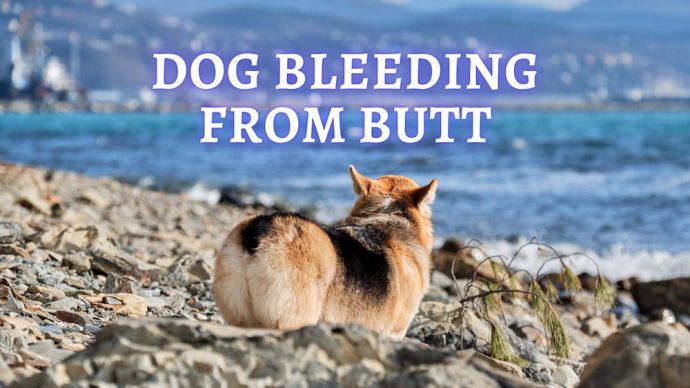 Dog Care Why Is My Dog Bleeding From Its Butt? Causes and treatment of rectal bleeding in the dog
Dog Care Why Is My Dog Bleeding From Its Butt? Causes and treatment of rectal bleeding in the dog - 22076
- 0
 Dog Care My Dog Keeps Scratching His Mouth: Reasons Why Your Dog Scratching Face
Dog Care My Dog Keeps Scratching His Mouth: Reasons Why Your Dog Scratching Face - 17561
- 1









